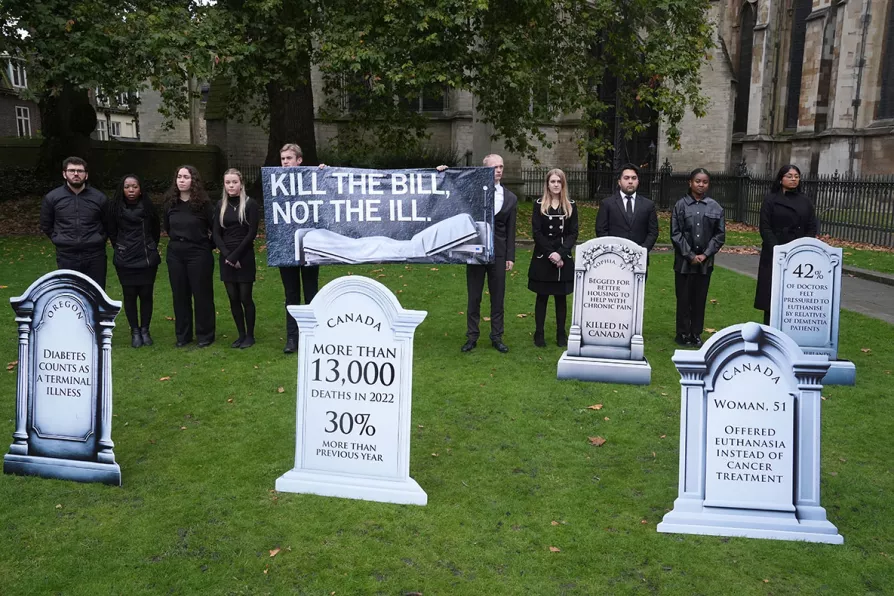Disability groups warn against assisted dying law

 Members of Distant Voices, Christian Concern, the Christian Medical Fellowship and SPUC gather in Westminster, central London, to protest against the "assisted dying bill", a private members bill, described as offering choice at the end of life, which is due to be formally introduced to Parliament in the House of Commons today, October 16, 2024
Members of Distant Voices, Christian Concern, the Christian Medical Fellowship and SPUC gather in Westminster, central London, to protest against the "assisted dying bill", a private members bill, described as offering choice at the end of life, which is due to be formally introduced to Parliament in the House of Commons today, October 16, 2024
MPs gave a formal first reading to the controversial assisted dying Bill today as disability groups warned against the legislation.
Campaigners on both sides of the debate gathered outside Parliament today ahead of the Terminally Ill Adults (End of Life) Bill being brought before MPs by Labour’s Kim Leadbeater.
The Bill will come up for debate next month, when MPs will have a free vote.
Similar stories

The controversial legislation now threatens even more vulnerable people after the committee stage stripped away the key High Court safeguard that convinced many MPs to support it, writes Dr CAJETAN SKOWRONSKI













